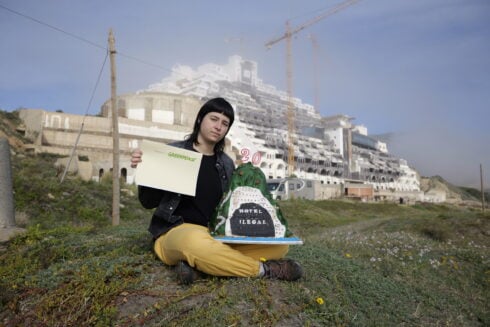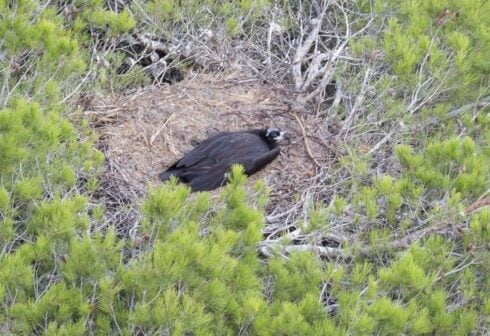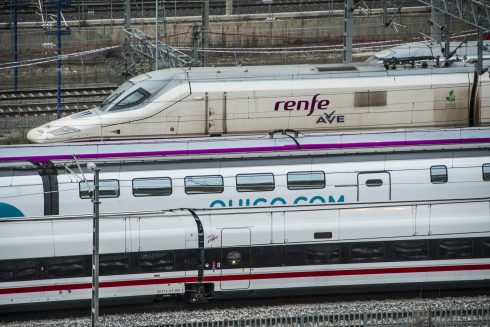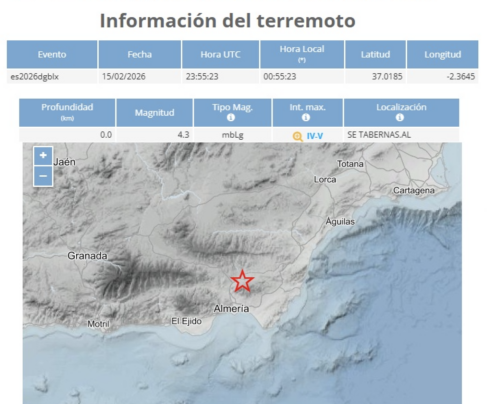ON many a sweltering afternoon this summer, speed boats have been spotted skimming across the Alboran Sea to Spanish shores.
To the casual eye, they could be mistaken for thrill-seekers who’ve hired out a speedboat for the day – a common sight from almost any beach in Spain.
For those who’ve been living on the southern coast for a bit longer, they might believe they have detected the telltale activity of drug smugglers.
But the reality is even darker still. These narco-style launches are no longer just transporting drugs.
Once they reach Spanish shores, instead of stashes of cocaine or hash, it is human beings who hop out into the water and make their way to land, quickly dispersing into the Spanish sun.

This is the new reality on Spain’s Mediterranean beaches, with the quiet, often overlooked province of Almeria at the epicentre.
The same networks that smuggle the drugs into Andalucía have branched out into a more lucrative trade – ferrying migrants across the Mediterranean from Algeria.
Numerous videos have been circulating on social media in recent weeks showing not just the scale but the brazenness of the operation, as the high-powered speed boats dodge Guardia Civil patrols to offload their cargo – sometimes even onto crowded tourist beaches.
In one such case last month, a speed boat carrying around a dozen men landed on a packed Sotillo Beach in Castell de Ferro, Granada, at the height of summer.
Stunned sunbathers watched these fully-clothed men jump over the side and scramble to shore – before a few took it upon themselves to rugby tackle them to the sand.
The boat had approached slowly in broad daylight, just metres from holidaymakers, before calmly turning back to sea.
The Guardia Civil made nine arrests that day.
Unlike the flimsy pateras that have long been associated with Mediterranean crossings, these smuggling vessels are built for speed and power.
Outfitted with engines of up to 425 horsepower, they can make the short run from Algeria to Almería in a matter of hours, and often return the same week for another load.
In one seven-day spell this spring, an 11.5-metre Phantom speedboat made three round trips from Algeria to Almería, landing around 150 people in total.
On one of the journeys, some 50 people were offloaded at night in the once-quiet cover of Cala Mochuela.
The boat was filmed racing back and forth into the same cove with new passengers, a rhythm of crossings that became almost routine.
This Phantom was eventually seized and destroyed by the Guardia Civil, but it was just a figurative drop in the ocean for the smugglers.
Guardia Civil investigations have revealed just how professionalised the trade has become.
READ MORE: Narco-boats ferried drugs and illegal migrants between Costa Blanca and Algeria
This summer’s Operation Nautilita took down an organisation that had invested more than €1 million in its fleet.
Raids in Almeria, Nijar, Tabernas, Espartinas (Sevilla) and Alicante netted 15 semi-rigid boats, moulds for building new hulls, high-powered engines, fuel stores, weapons and tens of thousands of euros in cash. Fourteen people were arrested and eight more investigated.
According to police, the network was structured like a corporation, with a host of financiers, intermediaries, boat crew and logisticians all on the payroll.
Profits were funnelled through French shell companies and hawala bankers before being recycled into new equipment.
In a parallel case, Policía Nacional recently dismantled another network in Almería and Alicante – but not one that smuggled people.
Instead, it specialised in supplying the boats, engines and fuel to the smugglers themselves.
Seven people were arrested, three remanded in custody, and three semi-rigid boats seized – vessels used in at least four crossings that brought more than 80 migrants to Spain and generated an estimated €560,000 in profit.
With the euro signs dangling, it’s not hard to grasp why the narcos have switched up.
The people smuggling trade has quickly come to rival drug trafficking for profitability, while the risks are comparable.
Each passenger on the Cala Mochuela trip paid between €6,000 and €10,000. The routes, boats and crews already existed; it was simply a matter of changing cargo.
Europe’s border agency Frontex warned in its 2025 Annual Risk Analysis that the Western Mediterranean remains a critical corridor for drug trafficking, but noted that smuggling groups have increasingly turned their tactics towards ferrying people.
Their methods are designed to evade detection and deliver boats directly onto Spanish shores, raising concerns that organised criminals could be slipping into Europe under the cover of irregular migration.
According to Pedro Fernandez, the Spanish government’s delegate in Andalucia, more than 90% of all migrants who reach the region in small boats land in Almeria.
By late August this year around 3,000 people were recorded to have arrived this way.
The risks are tragically underlined by recent drownings: just last week seven bodies were pulled from the sea off the coast of Nijar and Carboneras in Almeria, even as emergency crews scoured the area for more victims.
If the Almeria corridor represents the narco-professional side of the trade, the route from Algeria to the Balearics tells a very different story.
Instead of powerful launches, this line relies on rudimentary dinghies and inflatables. The journeys are longer, lasting 15 to 20 hours across open water, and far more dangerous.
In August alone, 4,800 people landed on the islands, a 71% increase on last year.
While many of them were Algerian nationals, Somalis and other sub-Saharan Africans continue to make up the majority. The price is lower, at around €1,500 per head, but the risks are exponentially higher.
By mid-2025, around 3,200 migrants from Algeria had reached Spain by sea, making up nearly half of all arrivals on the Western Mediterranean route.
The Balearic Islands are ill-equipped to handle the influx.
By mid-August, Formentera had seen 1,400 arrivals on 81 boats. Among them were 136 unaccompanied children, most transferred to Mallorca, including a ten-year-old who had endured more than 15 hours at sea with strangers.
Families are also making the crossing: 16 groups with 24 children have reached Formentera so far this year.

Reception centres are buckling. The Ministry of Migration has just 64 emergency places for particularly vulnerable cases, while facilities for unaccompanied minors are running at 150% of capacity, housing more than 600 children in spaces built for 400.
The cost of care is spiralling – Formentera spent €1.5 million in the first two months of the year alone, with an extra €4.1 million subsidy approved by the regional government to help cover the shortfall.
The human toll of all this irregular migration is grim. The International Organization for Migration recorded more than 2,400 deaths and disappearances across the entire Mediterranean in 2024, the deadliest year on record.
The Andalucian Human Rights Association reports that in Almerian waters alone, 19 bodies were recovered last year while 213 people remain missing.
Over four decades of monitoring, the group has counted more than 19,000 lives lost in Mediterranean crossings, with three-quarters of them occurring in just the last five years.
On Spain’s frontline, the Guardia Civil is overstretched and on many occasions overmatched.
Security sources describe afternoons when more than 20 boats and jet skis attempt the run simultaneously, delivering scores of passengers who slip through.
It is physically impossible to intercept them all. Even when smugglers are detained, prosecutions are patchy.
In Almería, 139 people have been arrested for trafficking offences over the past three years, yet prosecutions remain limited. In 2024, just 33 cases went to trial.
Meanwhile smugglers themselves post videos online, boasting of their exploits and mocking the patrols sent to stop them.
The root of the problem lies within Algeria’s borders.
Videos from near the Algerian port city of Oran show another reality: dozens of people wading into the surf or swimming out to reach the inflatables, clawing their way aboard as crews shout and engines roar.
For many, the crossing begins not with a departure, but with a desperate fight just to get a place on board.
All in broad daylight, with little visible interference from authorities.
While the Algerian police and navy do occasionally seize boats and make arrests, the overall flow suggests that enforcement is selective, overwhelmed or deliberately relaxed.
Analysts are divided as to what is behind it, with some pointing to Spain’s decision to abruptly shift its long-held neutrality on Western Sahara in 2022 – much to Algeria’s chagrin.
A former Spanish colony, Western Sahara has been contested since the 1970s when Madrid unilaterally pulled out and left the region to its fate.
Morocco claims it as a renegade territory of its own, while Algeria backs an independence movement led by the Polisario Front.
Amid this standoff between North African neighbours, Pedro Sanchez surprised many when he suddenly decided to back Morocco’s proposal to grant the territory limited autonomy – but under Moroccan sovereignty.
Algiers reacted furiously, recalling its ambassador to Spain, suspending a long-standing friendship treaty, freezing trade and – crucially – scaling back cooperation.
Since then, crossings from the Algerian coast have surged, with a sharp increase in embarkations from Oran and other ports, feeding into Spain’s migration crisis.
Unlike Morocco, Algeria has rarely used migration as an overt tool of political pressure, but its unwillingness or inability to clamp down has raised eyebrows.
For the gangs themselves, the calculus is brutally simple.
The demand is there – from Algerians seeking a better life, from sub-Saharan migrants stranded in North Africa, from families willing to risk everything.
The infrastructure is already there – boats, engines, crews, laundering networks.
And the profits are undeniable. Operation Nautilita struck a blow, but investigators admit the networks are resilient.
For every Phantom seized on the Spanish side, another waits on the sands of Oran, its engines primed and its human cargo already climbing aboard.
Click here to read more Almeria News from The Olive Press.








